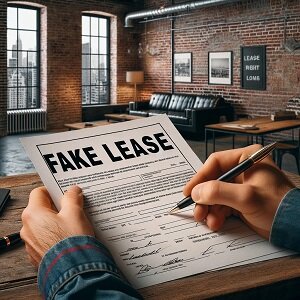If you are faced with dealing with settlers in New York, there are several steps you can take to address the situation effectively. First and foremost, familiarize yourself with the legal procedures and requirements specific to New York regarding squatter removal. This will ensure that you are well-informed and can navigate the process smoothly. Documenting any evidence of the settlers’ presence, such as photographs or witness statements, can be invaluable when presenting your case.
If you just want The Quickest Way To Remove a Squatter, check out the bottom of the blog by clicking the link above.
Next, it is crucial to engage the services of a professional legal representative who specializes in property law, as they will be able to guide you through the necessary legal actions and paperwork. Sometimes, it may be necessary to file an eviction lawsuit to legally remove the squatters from your property.
Finally, regular communication with local law enforcement can provide additional support and guidance throughout the process. By following these steps, you can effectively address and resolve the issue of settlers in New York.
Understanding Squatter’s Rights in New York: The Basics
In New York, squatter’s rights refer to the legal protections afforded to individuals who occupy another person’s property without permission. Squatters, also known as adverse possessors, can gain property ownership rights if certain conditions are met over time. To better comprehend the intricacies of squatter’s rights in New York, it is essential to understand the underlying legal principles. Adverse possession is a legal doctrine that allows someone to become the rightful owner of a property if they openly and continuously occupy it for a specified duration, typically ten years.
This occupation must be exclusive, meaning that the squatter must possess the property without sharing it with the owner or other individuals. Additionally, the possession must be hostile, meaning that the squatter’s presence is against the owner’s wishes. The squatter must also demonstrate actual possession, which involves physically using and maintaining the property as if they were the actual owner. Lastly, the squatter’s possession must be uninterrupted for the required time period. It is important to note that squatter’s rights do not apply to all types of properties, such as government-owned land or properties with certain legal protections. To navigate the complexities of squatter’s rights in New York, it is advisable to seek legal counsel to ensure compliance with the law and protect your property rights.
Definition and Explanation of Squatting Laws in New York
RPA Chapter 81, Article 7 provides the grounds for a particular proceeding to be maintained after serving a ten-day notice to quit. These include selling property through an execution against the occupant, occupying or holding property under an expired agreement, intrusion or squatting without permission, and continued occupancy despite the revocation of permission.
Other grounds include sale for unpaid taxes with compliance to legal provisions, foreclosure sale with the delivery of the deed, and tenants remaining in possession after termination of a life estate or license expiration/revocation by the licensor. Additionally, it covers situations where owners remain in possession without the purchaser’s consent post-sale and defaulting vendees continue occupation without the vendor’s approval.
Call Now (818) 651-8166
Why Sell Your Home to ASAP Cash Offer?
- You Pay Zero Fees
- Close quickly 7-28 days.
- Guaranteed Offer, no waiting.
- No repairs required, sell “AS IS”
- No appraisals or delays.
How Adverse Possession Affects Property Owners
Adverse possession can have significant implications for property owners, especially when removing squatters in New York. This legal concept allows someone who has occupied another person’s property without permission for a specific period to potentially claim ownership rights. The effects can be distressing for property owners as they may face potential loss.
The uncertainty and complexity surrounding adverse possession can perplex property owners, who may need to navigate legal processes and seek professional advice to protect their interests. Property owners must understand the laws and regulations about adverse possession in their jurisdiction to safeguard their properties and prevent unauthorized individuals from gaining ownership rights over their land.
Other Articles You Might Enjoy
- Can Police Remove Squatters in Pennsylvania
- Are There Squatters Rights In New York?
- How quickly do people make offers on a house?
- Are There Squatters Rights In Wyoming?
- How to get rid of squatters in Wisconsin
Preventing Unauthorized Occupancy: Proactive Measures
Preventing unauthorized occupancy is a critical concern for property owners, especially when dealing with the issue of squatters in New York. To effectively address this problem, proactive measures must be taken to ensure the security and protection of properties. Implementing robust security systems, such as surveillance cameras, access control systems, and alarm systems, can act as a powerful deterrent against unauthorized individuals attempting to occupy a property unlawfully.
Regular property inspections, both internally and externally, can help identify any signs of attempted occupation or unauthorized entry, enabling property owners to take immediate action. Furthermore, establishing strong relationships with neighbors and local law enforcement can provide an additional layer of support and vigilance in preventing unauthorized occupancy. By implementing these proactive measures, property owners can safeguard their properties and mitigate the risk of squatters taking over their premises.
Tips for Protecting Your Property from Squatters
Protecting your property from squatters is a critical concern for property owners in New York. With the rising cases of squatters unlawfully occupying vacant properties, it is essential to implement effective strategies to safeguard your investment. One important tip is to ensure regular inspections of your property. By conducting routine checks, you can identify any signs of unauthorized occupation early on and take immediate action.
Additionally, securing your property with proper locks and surveillance systems can act as a deterrent for potential squatters. It is also advisable to maintain the appearance of an occupied property by keeping the lawn well-maintained and installing timers for lights. Furthermore, establishing a good relationship with your neighbors can be beneficial, as they can notify you of any suspicious activities. Lastly, consulting with legal professionals who specialize in property laws can provide you with valuable guidance and assistance in dealing with squatters. By following these tips, you can protect your property and minimize the risk of squatters encroaching on your investment.
Call Now (818) 651-8166
Why Sell Your Home to ASAP Cash Offer?
- You Pay Zero Fees
- Close quickly 7-28 days.
- Guaranteed Offer, no waiting.
- No repairs required, sell “AS IS”
- No appraisals or delays.
Importance of Regular Property Inspections
Regular property inspections are of utmost importance for New York property owners in their efforts to prevent and address issues such as squatters. These inspections serve as a proactive measure to ensure the safety, security, and maintenance of the property. By conducting regular inspections, property owners can identify any signs of unauthorized occupation or potential squatting situations early on, allowing them to take immediate action to protect their property rights.
Furthermore, these inspections provide an opportunity to assess the overall condition of the property, identify any maintenance or repair needs, and address them promptly. Through regular inspections, property owners can maintain the value and integrity of their properties while minimizing the risks associated with squatters. Don’t leave the fate of your property to chance; prioritize regular inspections to safeguard your investment and ensure peace of mind.
Legal Steps to Remove Squatters in NY: The Eviction Process
The Eviction Process can be a challenging and intricate journey for property owners. New York state law provides a clear framework for dealing with this issue, ensuring that property rights are protected.
- The first step is to establish legal ownership of the property by presenting the necessary documentation to prove ownership.
- Once ownership is established, the property owner must serve a notice to the squatters, clearly stating their intention to regain possession of the property. This notice should include the timeframe in which the squatters are required to vacate the premises.
- If the squatters fail to comply, the property owner can proceed with filing a petition in the appropriate court to initiate the eviction process. It is crucial to gather all relevant evidence, such as photographs or witness statements, to support the case. During the court proceedings, both parties will have the opportunity to present their arguments and evidence.
- If the court rules in favor of the property owner, a warrant of eviction will be issued. This warrant allows law enforcement to physically remove the squatters from the property. While the legal steps can be complex, understanding the eviction process is essential for property owners seeking to reclaim their rightful property in New York.
Other Articles You Might Enjoy
- How To Get Rid of Squatters In Wyoming
- How to get rid of squatters in Wisconsin
- How to get rid of squatters in West Virginia
- How to get rid of squatters in Washington
- How to get rid of squatters in Vermont
Navigating the New York Eviction Notice Requirements
Navigating the New York eviction notice requirements can be a complex and intricate process. Understanding the legal framework and adhering to the specific guidelines is crucial for landlords looking to get rid of squatters in New York. The eviction notice serves as the initial step, notifying the tenant of their violation and giving them a chance to rectify the situation.
It is important to include all necessary information in the notice, such as the reason for eviction, the timeframe for compliance, and the consequences of non-compliance. Additionally, it is essential to ensure that the notice is served in the proper manner, either through personal delivery or certified mail. Familiarizing oneself with the specific requirements and seeking legal advice can help landlords navigate this intricate process successfully.
The Role of the Court System in Squatter Eviction
The court system plays a vital role in the process of squatter eviction, particularly in the context of New York. When dealing with the issue of removing squatters from a property, the court serves as the ultimate arbiter, ensuring a fair and lawful resolution. Squatter eviction cases typically involve filing a lawsuit in the appropriate court, presenting evidence of ownership or legal right to the property, and requesting an eviction order.
The court evaluates the evidence and considers the legal rights of all parties involved, including the squatters. It is through the court’s power and authority that the rightful property owner can regain possession and legally remove the squatters. The court system provides a structured and objective approach, ensuring that the rights and interests of all parties are upheld in the process of squatter eviction in New York.
Call Now (818) 651-8166
Why Sell Your Home to ASAP Cash Offer?
- You Pay Zero Fees
- Close quickly 7-28 days.
- Guaranteed Offer, no waiting.
- No repairs required, sell “AS IS”
- No appraisals or delays.
After Eviction: Repairing Damage and Reclaiming Your Property
Repairing Damage and Reclaiming Your Property is a comprehensive guide that provides invaluable insights on the necessary steps to take after evicting squatters from your property in New York. This informative resource covers a range of topics, including the assessment and repair of any damage caused by the squatters, as well as the legal procedures involved in reclaiming your property.
With expert advice and practical tips, this guide empowers property owners to navigate the aftermath of an eviction with confidence and reclaim their space effectively. Whether it’s repairing structural damage, restoring utilities, or addressing any lingering issues, After Eviction: Repairing Damage and Reclaiming Your Property offers a roadmap to ensure a smooth transition back to a safe and habitable space. Don’t let the aftermath of an eviction hold you back – take control and reclaim your property today.
Assessing and Repairing Property Damage from Squatters
Squatters, individuals who unlawfully occupy vacant properties, often leave behind a trail of destruction that requires immediate attention. From broken windows and damaged doors to vandalized interiors and structural compromises, the aftermath of squatter occupancy can be extensive. Property owners must thoroughly assess the extent of the damage to determine the necessary repairs.This may involve inspecting the plumbing, electrical systems, and overall structural integrity of the property. It is essential to address any safety hazards promptly to prevent further deterioration.
Repairing property damage from squatters requires a comprehensive approach, involving skilled professionals such as contractors, electricians, and plumbers who can restore the property to its pre-squatter condition. You have the option to sell your house as-is, which means you can sell your house fast in New York without costly repairs associated with squatter damage. By opting for this approach, property owners can alleviate the financial burden and expedite the process of transitioning out of a property that has been affected by squatters.
Strategies for Safeguarding Your Property Post-Eviction
Strategies for safeguarding your property post-eviction are essential to protect your investment and maintain the integrity of your premises. After successfully removing squatters from your property in New York, it is crucial to take proactive measures to prevent any further unwanted occupancy. First and foremost, securing all entry points and reinforcing locks and windows will serve as a deterrent against potential intruders. Installing a reliable security system with surveillance cameras will not only provide round-the-clock monitoring but also act as evidence in case of any future disputes.
Regular property inspections and maintenance will help identify and address any vulnerabilities promptly. Additionally, establishing a relationship with your neighbors can create a network of support and enhance the overall security of the area. Lastly, maintaining proper documentation of the eviction process and legal proceedings will serve as valuable evidence and aid in resolving any future disputes swiftly. By implementing these strategies, you can effectively safeguard your property and ensure a peaceful and secure environment for its occupants.
Call Now (818) 651-8166
Why Sell Your Home to ASAP Cash Offer?
- You Pay Zero Fees
- Close quickly 7-28 days.
- Guaranteed Offer, no waiting.
- No repairs required, sell “AS IS”
- No appraisals or delays.
The Quickest Way To Remove a Squatter

Based on our personal experience with removing squatters, In order to successfully remove a squatter ethically and quickly, you must replace them with a ‘new tenant’. This tactic will checkmate the ability of a squatter to pretend to be a contracted tenant by word or a fake lease contract which is typical of unethical squatters. To bypass normal laws and procedures surrounding tenant and squatter rights, you must avoid calling the police first prior to swapping out a squatter for a new fake tenant.
The reason for NOT calling the police first is that when the police arrive, the address will be documented, making red flags pop up when you call the police after installing a new fake tenant. Once you access the vacant property, install cameras, and have lease paperwork ready. The squatter cannot do or say anything to the police besides be prosecuted for trespassing, because you already have a documented tenant who lives in the property and this squatter is now a trespasser.
Create A Fake Lease For Your Friend or Family Member

We at ASAP Cash Offer believe paperwork is crucial when dealing with the police or court systems, which means having a lease (whether fake or real) for a replacement tenant (such as your friend or family member.) This can convince the police that the squatter is a trespasser and cannot be a the real tenant. Now, the grey area would be how long you want to say your new fake tenant has been a tenant. However long it’s been vacant for is the ideal timeline.
Local and state laws typically say you need to go to civil arbitration with a squatter if they verbally say to a police officer that they are a tenant or if they have a fake lease and have been an alleged “real tenant” for more than 30 days. This means that your replacement fake tenant should have a lease for more than 30 days as well.
Your goal is to show the police that you have a new tenant, you also have cameras installed, and when the squatter returns you may call the police to prosecute the squatter. Just make sure the house is empty and vacant, without their personal belongings that police could identify and further confuse the situation.
Have Your ‘New Tenant’ Move In

Moving your new (fake or real) tenant in, is the hardest part of this quick and easy squatter removal process. This is because there are ethical boundaries to consider. It’s best to have your new tenant move into the property, only once the squatter leaves the property, whether they leave for groceries or any other reason. Waiting for the squatter to leave the property is ideal, because it avoids confrontation, potential violence, or even false accusations of the squatter painting a significantly worse picture.
We do not offer legal advice and this should not be taken as legal advice, although, you should absolutely stay out of the property if a squatter is currently in the property for legal and safety reasons. We here at ASAP Cash Offer wish you luck and hope that you can get back your property that has been plagued by squatters. IF you still have a squatter problem, please note that we do buy houses for cash regardless of bad tenants or squatters, give us a call at (818) 651-8166 .



